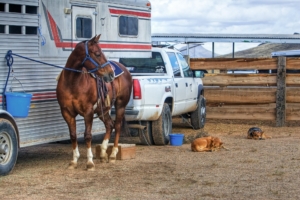
The typical homeowner’s insurance policy covers damage resulting from fire, windstorm, hail, water damage (excluding flooding), riots and explosion as well as other causes of loss, such as theft and the extra cost of living elsewhere which the structure is being repaired or rebuilt.
Your homeowner’s policy also covers your legal liability (up to policy limits) if you, members of your family or even your pets hurt other people or their property, not just in your house, but away from it, as well.
Three ways to insure the structure of your home:
- Replacement Cost. Insurance that pays the policyholder the cost of replacing the damaged property without deduction for depreciation, but limited to a maximum dollar amount.
- Extended Replacement Cost.An extended replacement cost policy, one that covers costs up to a certain percentage over the limit (usually 20%). This gives you protection against such things as a sudden increase in construction costs.
- Actual Cash Value. This covers the cost to replace your home minus depreciation costs for age and use. For example, if the life expectancy of your roof is 20 years and your roof is 15 years old, the cost to replace it in today’s marketplace is going to be much higher than its actual cash value.
Tips for Insuring Your Home to Value
It is best to insure your home for the total amount it would cost to rebuild your home if it were destroyed. That’s not the market value, but the cost to rebuild. If you don’t have sufficient insurance, your company may only pay a portion of the cost of replacing or repairing damaged items. Here are some tips to help make sure you have enough insurance:
- For a quick estimate on the amount to rebuild your home: multiply the local building costs per square foot by the total square footage of your house. To find out the building rates in your area, consult your local builders association or a reputable builder. You should also check with your insurance agent.
- Factors that will determine the cost to rebuild your home: a) construction costs b) square footage of the structure c) type of exterior wall construction—frame, masonry or veneer d) the style of the house (ranch, colonial) e) the number of rooms & bathrooms f) the type of roof g) attached garages, fireplaces, exterior trim and other special features like arched windows or unique interior trim.
- Check the value of your homeowner’s policy against rising local building cost each year. Check with your insurance agent to see if they offer an “Inflation Guard Clause.” This automatically adjusts the dwelling limit when you renew your policy to reflect current construction costs in your area.
- Check the latest building codes in your community. Building codes require structures to be constructed to minimum standards. If your home is severely damaged, you might have to rebuild it to comply with the new standards requiring a change in design or building materials. These generally cost more.
- Do not insure your home for the market value. The cost of rebuilding your home may be higher or lower than the price you paid for it or the price you could sell it for today.
Advise your insurer and increase the limits of your homeowner’s policy if you make improvements or additions to your house.

 Trailers come in all shapes and sizes and for some folks they’re an absolute must-have. For others they may be needed to transport a horse or livestock, and still others need a utility trailer to carry equipment for their lawn care or pool cleaning business. There are open trailers and enclosed trailers, but they all run the same risk of being involved in a collision when being driven with property in tow.
Trailers come in all shapes and sizes and for some folks they’re an absolute must-have. For others they may be needed to transport a horse or livestock, and still others need a utility trailer to carry equipment for their lawn care or pool cleaning business. There are open trailers and enclosed trailers, but they all run the same risk of being involved in a collision when being driven with property in tow.